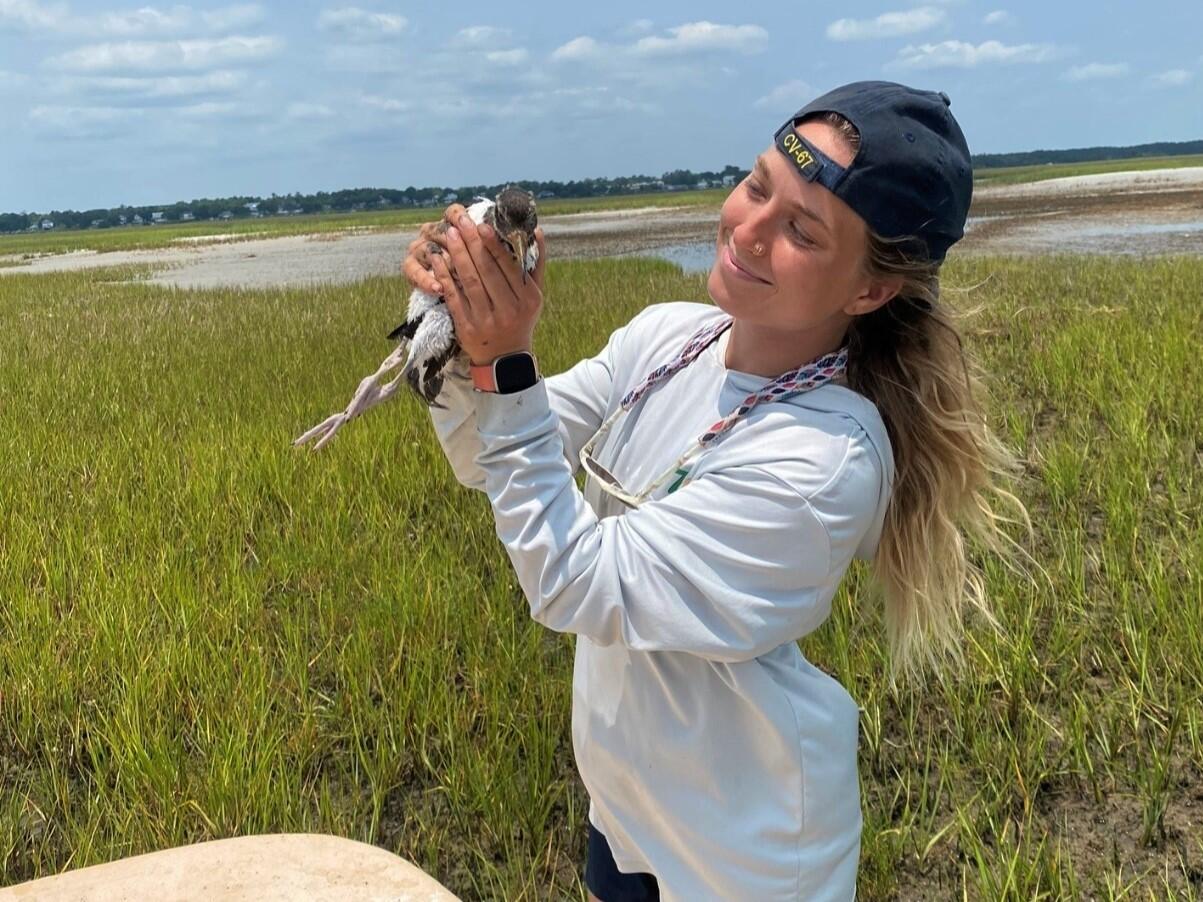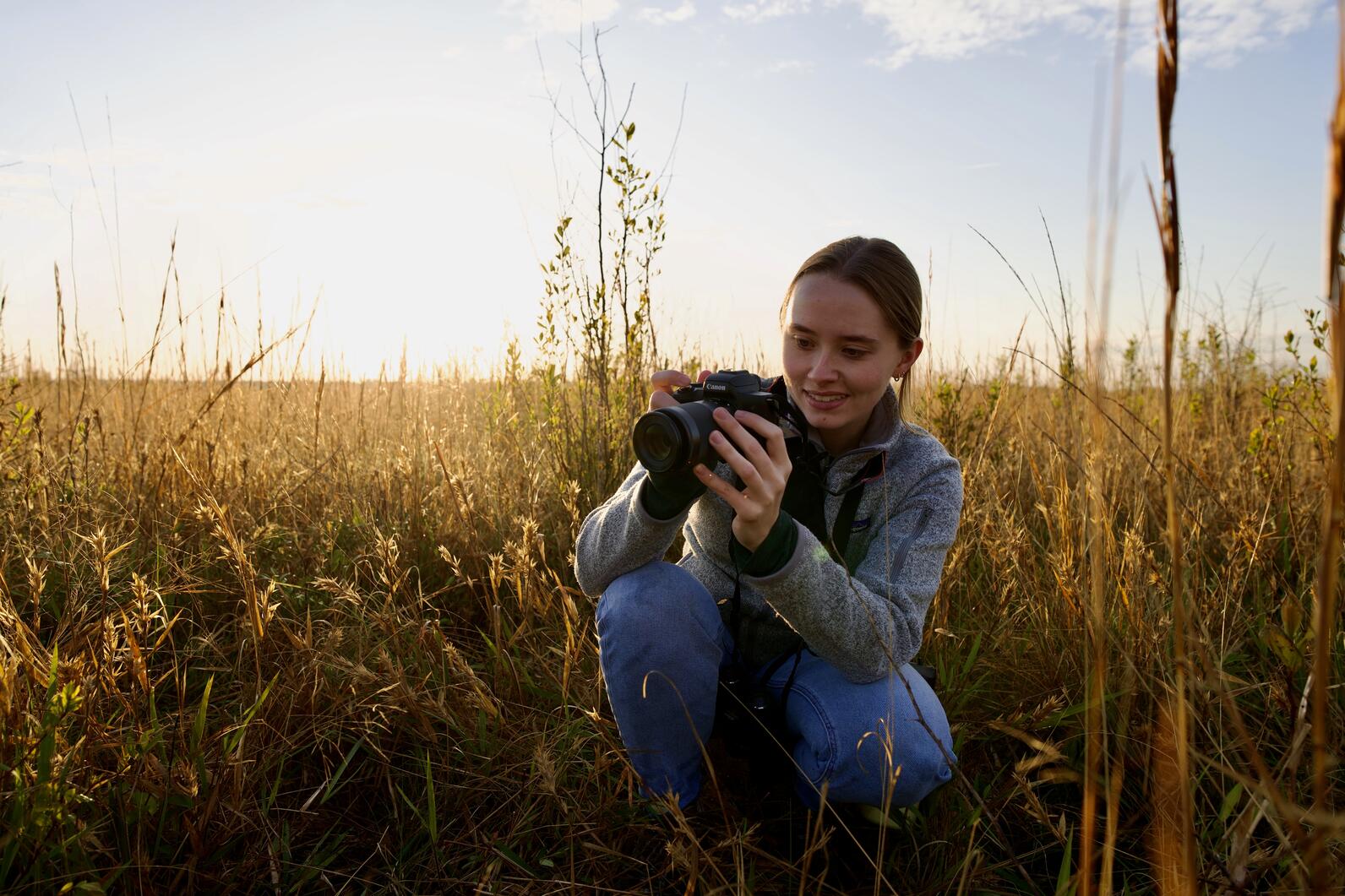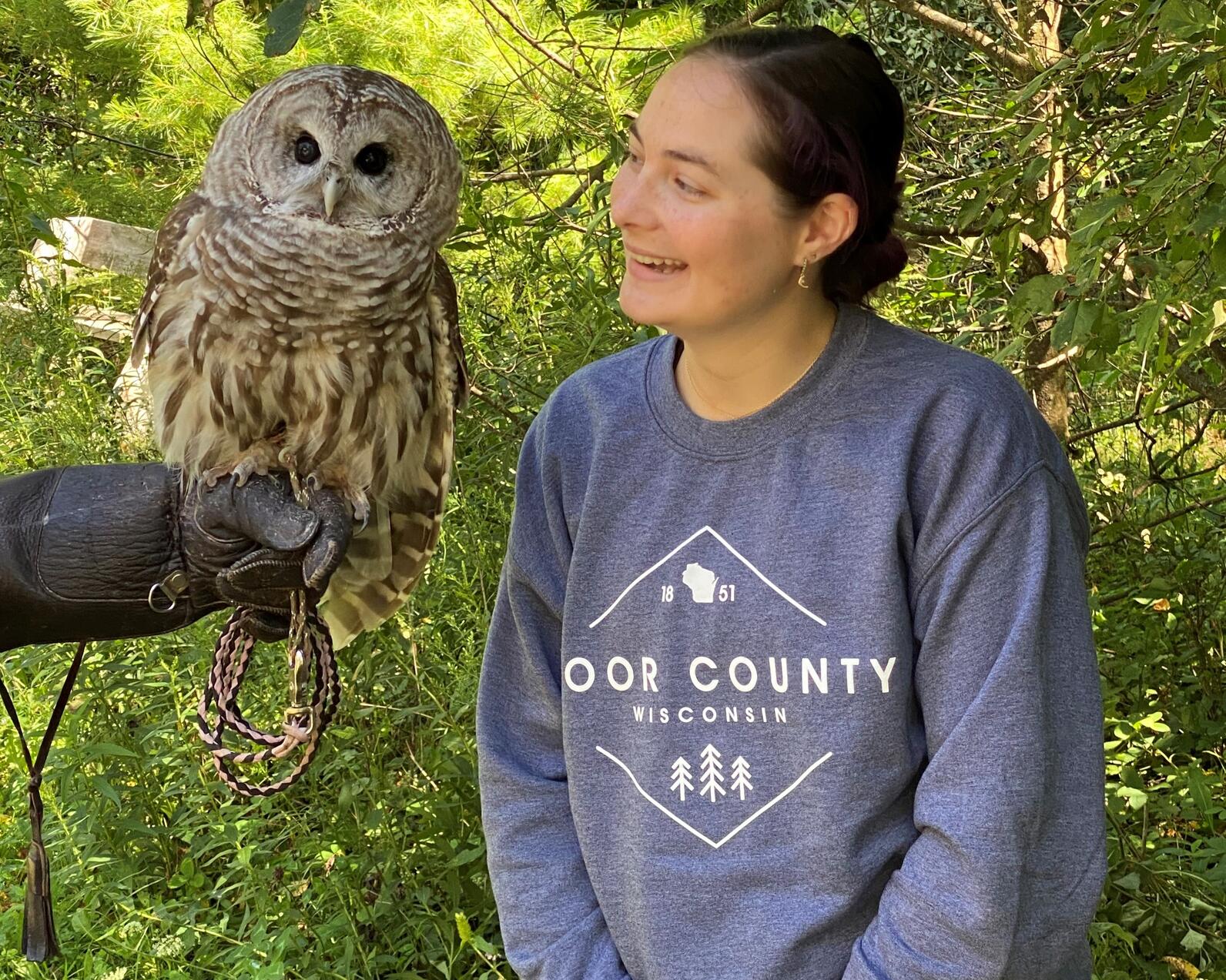The Audubon North Carolina team has grown by three this spring and summer. Brittany Salmons is our new Communications Associate, helping to tell the story of our bird conservation work. Lauren Rener joined our coastal team out of Wilmington, where she helps monitor important nesting sanctuaries during the busy breeding season. Hannah Pursley is our new Forest Program Manager, focusing on conservation as it relates to Urban Forestry in North Carolina.
More about Lauren:
Do you have a specific memory or occasion that sparked your enthusiasm for birds and the outdoors?
Prioritizing my time outdoors has always come naturally to me. When I was a child, I was outside running in the Texan grass fields until the streetlights came on, or watching documentaries of species I dreamt of seeing one day. My love for birds has been passed down through the generations in my family, growing up my mother and grandmother would share poetry or songs about birds. It's difficult to say when my enthusiasm began, observing birds has always delivered peace to my life!
Describe your work with Audubon on the North Carolina coast.
I spend most of my time on Lea Island, Hutaff Island, or the Cape Fear River. Duties I perform regularly include data collection, surveys, installing and protecting postings, educating the public, operating boats, and helping out with a variety of other tasks! Every day brings an opportunity to learn, and there's never a dull moment.
What’s your favorite bird?
Many birds bring me joy, but I loved small birds as a child! Growing up in Texas, my favorite sightings were of species of hummingbirds (Ruby-throated and Buff-bellied), and various species of finches that would hop around the yard. Since my move to North Carolina, I have developed a love for the American Oystercatcher.

What motivates you to get involved in conservation and environmental issues?
Protecting the things I love and knowing I am a part of a community that is making a positive impact for the things in this world that can't speak up for themselves.
What’s your favorite part about your job?
Observing. I have always felt most like myself doing what I love, spending time outdoors and watching nature. I enjoy learning about the shoreline habitats, and having the opportunity to witness an entire breeding season.
More about Brittany:
Do you have a specific memory or occasion that sparked your enthusiasm for birds and the outdoors?
When I was younger, I used to go on long walks in the woods around Kerr Lake with my family. I remember passing over a creek on our well-established walking path in the woods and the same frog would be swimming around, croaking as we walked by. We eventually named him Henry and every time we passed by the creek, we would keep an eye out for him. Year-after-year we listened for his loud croak and greeted him as if he were a person. I realized how connected I was to the environment through my imagined relationship with this frog – a small but integral part of the ecosystem.
Describe your work on the communications team.
As a science communicator, my job is to bring the average person closer to the on-the-ground science and conservation work that our biologists are doing every day, and sometimes that means getting to participate in that hard work. Over the past month I’ve had the chance to visit our coastal team in Wilmington a few times and see what they've been up to. My main goal when I’m in the field is to take photos, ask questions, and just learn about what they’re doing and why. I recently wrote about our experience with the North Carolina Colonial Waterbird Census this year which you can find here.

What’s your favorite bird?
My favorite bird is probably the Eastern Bluebird. They’re beautiful birds that are really easy to spot. They like to nest in bird boxes so if you put one up in your yard or local park, there is a pretty good chance that you’ll be able to observe them up close.
What motivates you to get involved in conservation and environmental issues?
I see science communication as an avenue for both sharing about the wonders of the natural environment and compelling people to take action to help conserve it – and that itself is inspiring. The interactions I have with scientists, habitat managers, and volunteers about the work they’re doing is what really motivates me.
What’s your favorite part about your job?
I love being able to share what our biologists and resource managers are doing and hopefully showing how vital that work is to both birds and people. I also love that my job requires me to be constantly learning and asking questions, I think that being in a perpetual state of curiosity is the best way to live.
More about Hannah:
Do you have a specific memory or occasion that sparked your enthusiasm for birds and the outdoors?
I don't think it was one specific moment, but rather the natural progression of growing up always outside. When I wasn't outside, it was likely that I was watching nature shows on Animal Planet, Discovery or National Geographic. Looking back I'm not surprised at all!

Describe your work or priorities as the new forestry director.
I will be focusing on the Urban Forestry aspect of conservation as it relates to improving smaller urban stands for birds in North Carolina. Working with the local chapters, other partner NGOs, towns and cities; I will be advocating for more bird friendly practices when it comes to forest management, town ordinances, landowners, etc. Otherwise, I will be supporting the other Audubon North Carolina staff, participating in ForestHers, and much more!
What’s your favorite bird?
My favorite bird would have to be the Carolina Chickadee. These round little birds with their distinctive "see-dee, see-dee" song have always enamored me growing up in North Carolina. They're just silly little guys!
What motivates you to get involved in conservation and environmental issues?
Conservation is what I am most passionate about in my life; it is what I have always known what I wanted to do ever since I was a small child running around in the woods near my house. I want to do good, meaningful work, that has a tangible, positive impact on the environment. This drive only increased when I began studying Environmental Science in college; all the different ecosystems and species need all the help they can get. I am determined to do my part.
What’s your favorite part about your job?
I've only just started, but looking forward, I think I am going to really enjoy working with so many other people with similar interests and passions! Besides that, getting out into the field, meeting people, seeing the birds we're helping protect.










